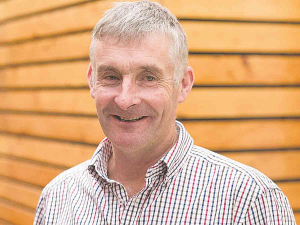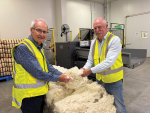For this reason, the company has launched its new 12-part ‘wool benefits’ marketing programme aimed at re-introducing the world to the fibre.
Wools of New Zealand executive director Mark Shadbolt says the recently launched programme resonates with local and international customers alike.
“The messages are simple, premised on the fundamentals of style, people and planet – backed by research – to give front line retailers and others throughout the supply chain the confidence in promoting crossbred wool as a truly sustainable, naturally occurring fibre.”
The programme was recognised this month with a flooring innovation award for marketing at this year’s National Flooring Innovation Awards at Harrogate in the UK.
Shadbolt says recognition in the key UK market is a great start.
“British consumers are the highest per capita consumers of wool carpets in the world so it is important that we reiterate to the retail sector that this is a key focus for Wools of New Zealand,” he explained.
“On a wider scale, there has been a significant increase in demand for certified wool and fully traceable products from brands looking for a trust mark for consumers so Wools of New Zealand wool ticks those boxes.”
The marketing material and initiative also has appeal to wool growers.
West Otago grower Lloyd Brenssell, who runs 41,000 stock units on his 10,500ha property, says sheep farmers have long been looking for something to happen in wool marketing.
Three years ago, wool from his Fernvale property at Moa Flat sold for an average $6/kg. This year about half of that sale price was achieved.
“This is an exciting initiative for the promotion of crossbred wool. I have finally been shown something that will inform the general public about the attributes of wool and we need to continue distributing material of this kind and getting it in front of consumers.”
Brenssell believes part of the problem is the public’s lack of appreciation of the natural qualities of the fibre.
“People simply don’t understand wool and its qualities. We get a lot of negative publicity about the perceived effects of our operations on the environment, yet here we are producing a natural and sustainable product that will not take years to break down.
“The Government is very vocal around plastic use and plastic waste. What we should also be shouting about on the environmental side are the natural products that our farmers produce.”
Wools of New Zealand has also been given preferred supplier status by leading UK retail group John Lewis, a significant retail partner for leading carpet manufacturer Ulster carpets, due to the integrity and sustainability of its wool.
Andrew Gicquel, sales manager at Ulster Carpets, says they have worked in partnership with Wools of New Zealand for several years, notably to develop the popular Open Spaces Auckland, Queenstown and Wellington Stripe ranges.
“It can be overwhelming for retailers to communicate the extensive range of benefits offered by wool but this marketing programme has made the process much easier and more effective,” he said.
“Combined with our own initiatives, this can only help create a better understanding of the many attributes and benefits of wool, providing retail staff and, ultimately, consumers with more confidence in selecting and buying wool-rich carpets.”



















